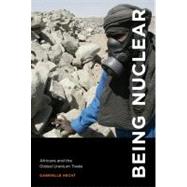
| Preface | p. ix |
| Acronyms and Abbreviations | p. xv |
| Introduction: The Power of Nuclear Things | p. 1 |
| Proliferating Markets | |
| Market Aversions | p. 49 |
| Imperial Projections and Market Devices | p. 55 |
| Resource Sovereignty | p. 79 |
| Colonial Enrichment | p. 85 |
| La Françafrique | p. 107 |
| The Price of Sovereignty | p. 115 |
| Nuclear Frankenstein | p. 141 |
| In the Shadows of the Market | p. 147 |
| Borderlands | p. 171 |
| Nuclear Work | |
| Nuclear Desertions | p. 177 |
| A History of Invisibility | p. 183 |
| Expatriates, Ethnology, and Ethnicity | p. 213 |
| Nuclearity at Work | p. 219 |
| Migrant Miners | p. 251 |
| Invisible Exposures | p. 259 |
| Against Uranium | p. 287 |
| Hopes for the Irradiated Body | p. 293 |
| Conclusion: Uranium in Africa | p. 319 |
| Appendix: Primary Sources and the (In)Visibilities of History | p. 341 |
| Publication History | p. 351 |
| Notes | p. 353 |
| Bibliography | p. 407 |
| Index | p. 443 |
| Table of Contents provided by Ingram. All Rights Reserved. |
The New copy of this book will include any supplemental materials advertised. Please check the title of the book to determine if it should include any access cards, study guides, lab manuals, CDs, etc.
The Used, Rental and eBook copies of this book are not guaranteed to include any supplemental materials. Typically, only the book itself is included. This is true even if the title states it includes any access cards, study guides, lab manuals, CDs, etc.